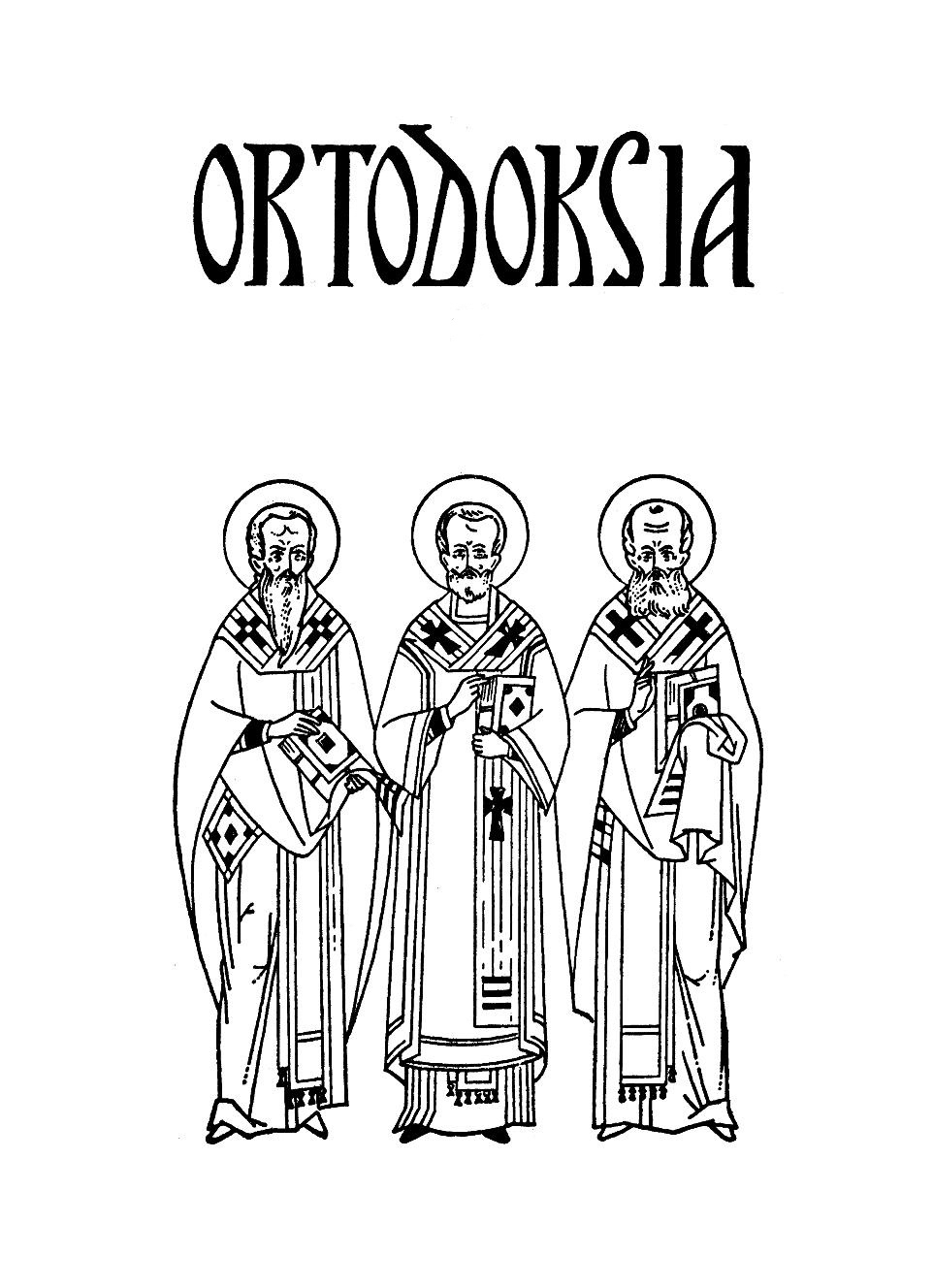The One Who Understands
St Xenia the Blessed, Small Miracles, and Therapeutic Turn in Russian Orthodox Christianity
DOI:
https://doi.org/10.61560/ortodoksia.143860Avainsanat:
pyhyys, ortodoksinen kristinusko, terapeuttinen kulttuuri, eletty uskonto, muistomerkit, Ksenia Pietarilainen, pienet ihmeetAbstrakti
Hän, joka ymmärtää: Autuas Ksenia, pienet ihmeet ja terapeuttinen käänne venäläisessä ortodoksisuudessa
Artikkeli käsittelee pyhän Ksenia Pietarilaisen kunnioitusta tämän hetken venäläisessä vernakulaarissa ortodoksisuudessa. Analysoimalla ortodoksiselle perinteelle tuntemattomia pyhän kunnioittamisen muotoja, kuten patsasta ja hengellistä laulua artikkelissa osoitetaan, että emotionaalisen lohdun saaminen ja pyhän kanssa kommunikoinnin emotionalisaatio ovat perustavanlaatuisia elementtejä venäläisortodoksisessa eletyssä uskonnossa. Uskovat näkevät autuaan Ksenian eräänlaisena ”vertaisneuvojana”, jolta saadut empatia ja lohdutus perustuvat hänen omaan kokemukseensa sosiaalisesta kärsimyksestä. Artikkeli osoittaa, että pyhän lähestymisen tai pyhässä paikassa vierailun odotetaan tuovan ”pienen ihmeen” emotionaalisen lohdun muodossa. Siinä esitetään, että kyse on globaalin terapeuttisen käänteen vaikutuksesta venäläiseen ortodoksisuuteen.

Lähdeviitteet
Bandak, Andreas (2022). Exemplary Life: Modelling Sainthood in Christian Syria. Toronto, Buffalo, London: University of Toronto Press.
Bowman, Marion and Valk, Ülo (ed.) (2012). Vernacular Religion in Everyday Life. London and New York: Routledge.
Brown, Peter (1983). The Saint as Exemplar in Late Christianity. Representations 1(2), 1–25.
Дубовка, Дарья (2015). Забытое время, или Практики самотрансформации в современном православном монастыре. Государство, религия, церковь в России и за рубежом 3(33), 322–344.
Дубовка, Дарья (2020). В монастырь с миром. В поисках светских корнец современной духовности. Санкт-Петербург: Издательство европейского университета.
Духанова, Диана (2018). Петр и Феврония и День семьи, любви и верности: пронатализм и нестабильный гендерный порядок в современной России. Государство, религия и церковь в России и за рубежом 36(2), 194–220.
Illouz, Eva (2008). Saving the Modern Soul: Therapy, Emotions and the Culture of Self-Help. Berkeley: University of California Press.
Ivanov, Sergei (2006). Holy Fools in Byzantium and Beyond. New York: Oxford University Press.
Kahla, Elina (2007). Life as Exploit: Representations of Twentieth-Century Saintly Women in Russia. Helsinki: Kikimora Publications.
Kharkhordin, Oleg (2016). Friendship and Politics in Russia. Common Knowledge 22(2), 220–236.
Kizenko, Nadezhda (2000). A Prodigal Saint: Father John of Kronstadt and the Russian People. Penn State University Press.
Kizenko, Nadezhda (2003). Protectors of Women and the Lower Orders: Constructing Sainthood in Modern Russia. In Robert H. Green and Valery A. Kivelson (eds), Orthodox Russia: Beliefs and Practices Under the Tsars. University Park: Pennsylvania State University, 189–218.
Kormina, Jeanne and Luehrmann, Sonja (2018). The Social Nature of Prayer in a Church of the Unchurched: Russian Orthodox Christianity From Its Edges. Journal of the American Anthropology of Religion 86(2), 393–424. https://doi.org/10.1093/jaarel/lfx055
Kormina, Jeanne and Shtyrkov, Sergei (2012). Believers’ Letters as Advertising: St Xenia of St Petersburg’s ‘National Reception Center’. In Albert Baiburin, Catriona Kelly, and Nikolai Vakhtin (eds), Russian Cultural Anthropology after the Collapse of Communism. Abingdon, Oxon: Routledge, 155–182.
Kormina, Jeanne and Shtyrkov, Sergei (2011). St. Xenia as a Patron of Female Social Suffering: An Essay on Anthropological Hagiography. In Jarrett Zigon (ed.), Multiple Moralities and Religions in Post-Soviet Russia. New York: Berghahn Books, 168–190.
Кормина, Жанна (2019). Паломники. Этнографические очерк православного номадизма. Москва: Высшая школа экономики.
Lerner, Yulia (2015). The Changing Meaning of Russian Love: Emotional Socialism and Therapeutic Culture on the Post-Soviet Screen. Sexuality and Culture 19(2), 349–368. https://doi.org/10.1007/s12119-014-9261-2
Lerner, Yulia (2011). TV Therapy without Psychology: Adapting the Self in Post-Soviet Media. Laboratorium 1, 116–137.
Lerner, Yulia (2020). Saving the Post-Soviet Soul: Religion as Therapy in the Narratives of Russian-speaking Migrant Women. In Suvi Salmenniemi, Johanna Nurmi, Inna Perheentupa, and Harley Bergrith (eds), Assembling Therapeutics: Cultures, Politics and Materiality. Routledge, 74–91.
Levin, Eve (1993). Dvoeverie and Popular Religion. In Stephen K. Batalden (ed.), Seeking God: The Recovery of Religious Identity in Orthodox Russia, Ukraine, and Georgia. DeKalb: Northern Illinois University Press, 31-52.
Leykin, Inna (2015). Rodologia: Genealogy as Therapy in Post-Soviet Russia. Ethnos 43(2), 135–164. https://doi.org/10.1111/etho.12078
Macklin, Julia (1988). Two Faces of Sainthood: The Pious and the Popular. Journal of Latin American Lore 14, 67–90.
Matza, Thomas (2009). Moscow’s Echo: Technologies of the Self, Publics, and Politics on the Russian Talk Show. Cultural Anthropology 24(3), 489–522. https://doi.org/10.1111/j.1548-1360.2009.01038.x
Matza, Thomas (2018). Shock Therapy: Psychology, Precarity, and Well-Being in Postsocialist Russia. Durham, NC: Duke University Press.
Панченко, Алексанр А. (1998). Исследования в области народного православия. Деревенские святыни Северо-Запада России. Санкт-Петрбург: Алетейя.
Ries, Nancy (1997). Russian Talk: Culture and Conversation during Perestroika. Ithaca, N.Y. and London: Cornell University Press.
Rock, Stella (2001). What’s in a Word? A Historical Study of the Concept Dvoeverie. Canadian-American Slavic Studies, 35(1), 19–28. https://doi.org/10.1163/221023901X00893
Salmenniemi, Suvi and Vorona, Mariya (2014). Reading Self-help Literature in Russia: Governmentality, Psychology and Subjectivity. British Journal of Sociology 65(1), 43–62. https://doi.org/10.1111/1468-4446.12039
Salmenniemi, Suvi, Nurmi, Johanna, Perheentupa, Inna, and Harley Bergrith (2020). Assembling Therapeutics: Cultures, Politics and Materiality. Routledge. https://doi.org/10.4324/9781351233392
Stahl, Irina (2014). Saint Nektarios, the ‘Migrant’ Saint: From the Greek Aegina to the ‘Romanian Aegina’. The Ritual Year 8: Migrations, The Yearbook of the SIEF Working Group on the Ritual. Sofia: Paradigma, 327–352.
Shtyrkov, Sergei (2011). The Unmerry Widow: The Blessed Kseniia of Petersburg in Hagiography and Hymnography. In Priscilla Hunt and Svitlana Kobets (eds), Holy Foolishness in Russia: New Perspectives. Bloomington: Slavica Publications, 281–304.
Штырков, Сергей А. (2006). После «народной религиозности». В Жанна Кормина, Александр Панченко и Сергей Штырков (ред.), Сны Богородицы. СПб: издателдьство Европейского университета, 7–18.
Cукина, Людмила Б. (2022). Святой и исторический деятель. Монументы «двойного назначения» в культуре памяти современной России. Вестник РГГУ. Серия «Литературоведение. Языкознание. Культурология» 2, 10–29.
Tiaynen-Qadir, Tatiana and Salmenniemi, Suvi (2017). Self-help as a Glocalized Therapeutic Assemblage. European Journal of Cultural Studies 20(4), 381–396. https://doi.org/10.1177/1367549417718205
Tiaynen-Qadir, Tatiana (2020). Therapeutic and Therapeia within Orthodox Christianity. In Suvi Salmanniemi, Johanna Nurmi, Inna Perheentupa, and Harley Bergrith (eds), Assembling Therapeutics: Cultures, Politics and Materiality. Routledge, 58–73. https://doi.org/10.4324/9781351233392
Tocheva, Detelina (2021). Lay Women and the Transformation of Orthodox Christianity in Russia. In Ina Merdjanova (ed.), Women and Religiosity in Orthodox Christianity. New York: Fordham University Press, 76–100. https://doi.org/10.2307/j.ctv1zm2tjd.7
Vaté, Virginie (2024). The Construction of Russian Orthodoxy in Chukotka: Ministering to the People and Marking the Territory in an Arctic Border Zone. Archives de sciences sociales des religions 206.
Tiedostolataukset
Julkaistu
Numero
Osasto
Lisenssi
Copyright (c) 2024 Jeanne Kormina

Tämä työ on lisensoitu Creative Commons Nimeä 4.0 Kansainvälinen Julkinen -lisenssillä.


